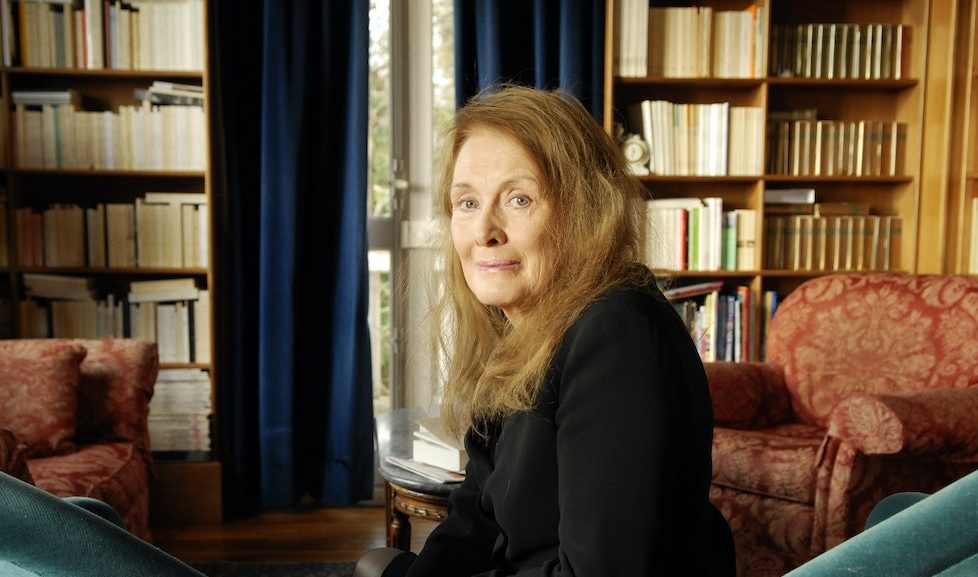Annie Ernaux, Sublime Writing of Shame

The great Annie Ernaux, an 82-year-old French writer, wins the Nobel Prize for Literature. Annie Ernaux is the author of several books. Among the best known: « The Years », a vast fresco about herself, her childhood, her parents, her struggles and at the same time a monograph of a post-war generation that saw its world transform over six decades; « The Square, » where she recounts the death of her father, her life and paints the almost embarrassing social rise of a girl who became a teacher and a woman; « L’événement, » about her secret abortion; « Mémoire de fille, » where she revisits her rape -she put a word to the incident much later- on a summer night in 1958; or « Simple Passion », which recounts an intense and brief love affair with a married Slavic man, who lives abroad.
In her books, Annie Ernaux tells her story through a stripped-down, simple, unadorned, meticulous, and precise writing that puts its finger on tormented and painful tribulations in order to deliver their unvarnished truths to the reader. This « flat writing », often the object of criticism by privileged people, a kind of hybrid genre between essay, narrative and testimony, is the hallmark of Annie Ernaux‘s work. She shows courage in putting her person and her intimacy at the disposal of others’ judgment. But she inspires millions of people who find themselves in her. She has also inspired people to dare to go beyond the path mapped out by conservative social infrastructure that represses the poor and perpetuate a violent domination over us.
Annie Ernaux tells a world story through the prism of her own existence. She consecrates the auto-socio-biography, a writing which makes the account of individual life by inserting it in a wider sociological geography and by summoning the social structures and the engines which generate the inequalities, and violence on the poor. It has inspired many authors whose books tell the story of oppression linked to class and gender, and the ascent through school that allows one to escape from their original environment and to insert themselves like an intruder in the lair of the bourgeoisie. Annie Ernaux‘s writing touches me. She is in my pantheon of great authors whose work challenges me, questions me and mouldswhat I cannot say or write in such a fair, beautiful and powerful way. Her work is permeated by poverty, the oppression of the dominated, pain, violence, desire, passion, shame, social climbing, bodies.
It is the literature of a class defector that touches me even more personally because I find myself in her description of what millions of us share. « La Place » is for me her most powerful book, in the way it delivers, through the figure of the father and their chaotic relationship, an exceptional story about social ascension, the inner tug-of-war it provokes and the return to the roots of origins. The Academy of the Nobel was well inspired in rewarding Annie Ernaux, « the courage and clinical acuity with which she discovers the roots, the distances and the collective constraints of personal memory ». She is an exceptional woman of talent, courage, dignity and in her will to free millions of people from the trap of social condition. What seduced me in reading Annie Ernaux is the way she tells her life story, the life of a white woman, from Normandy, over 60 years old, who nevertheless embraces the universal. I immediately found myself in her words because we live in the same country as the underdogs who have moved to the other side.
Annie Ernaux is a very political writer who starts from her personal experience to think of a universal aesthetic availableto our political camp, the Left, in order to propose a theory of the liberation of Man. She is a committed woman who supported Jean-Luc Mélenchon in the last French presidential election and thus invested her symbolic capital in a political cause that called for the destruction of capitalism and the building of equality, which is the oath of the social republic.Finally, Annie Ernaux described the shame that children of the poor know and have often experienced, almost at every moment of their lives; a shame of their parents, of their daily life, of the look of others and of their own look on theirs and on themselves. A shame from which we never emerge, except by preferring vulgarity to a permanent face-to-face encounter with ourselves.
By Hamidou ANNE / hamidou.anne@lequotidien.sn

